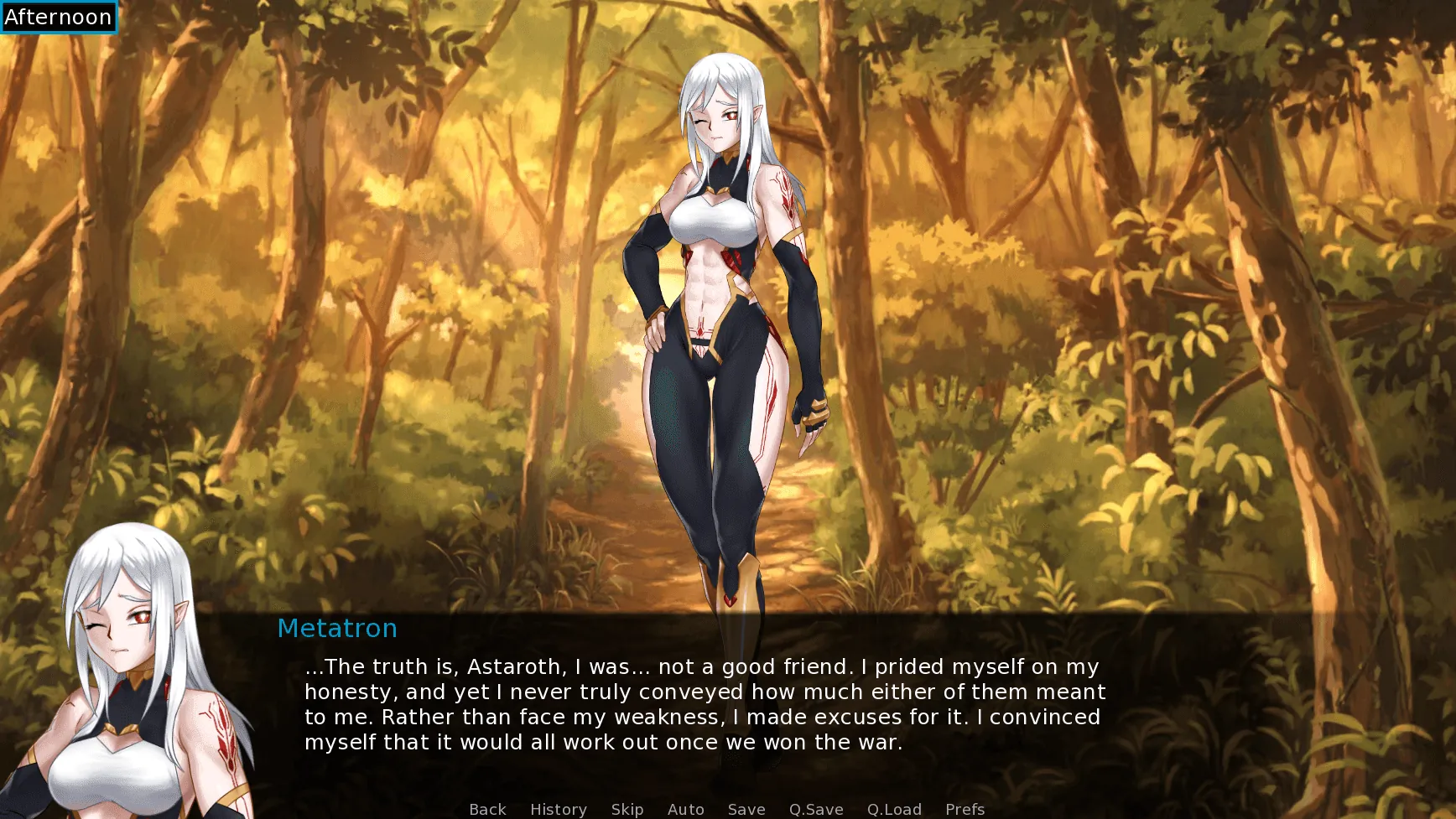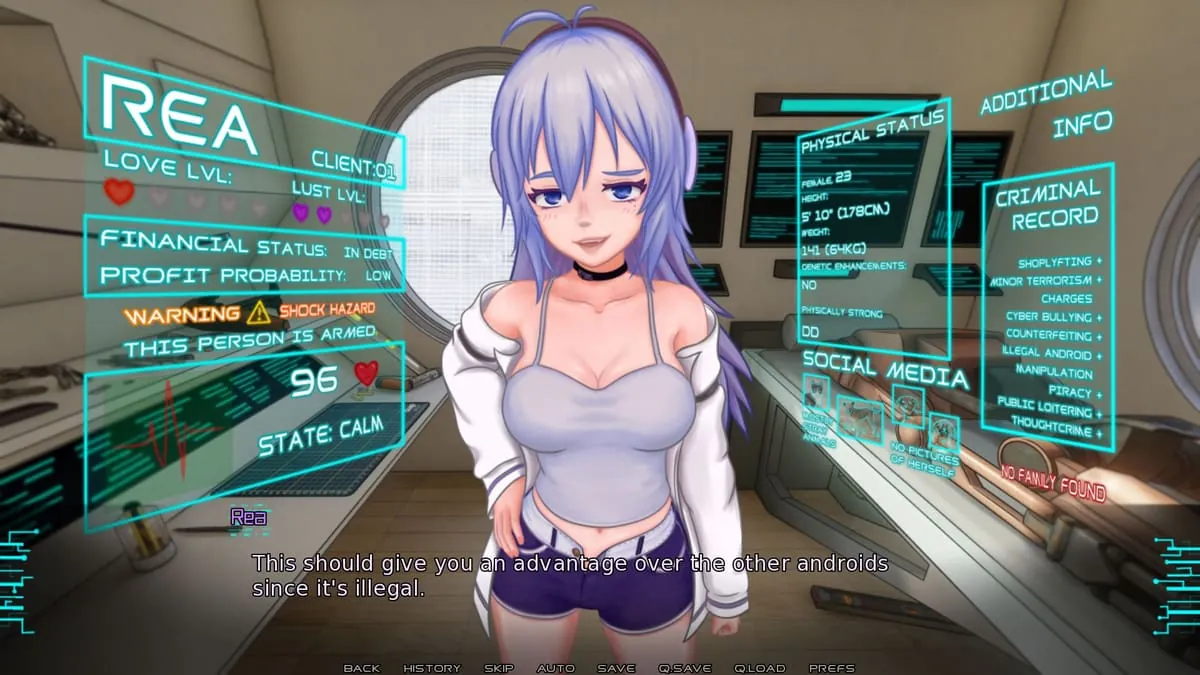
Parental Love
Play Parental Love
Parental Love review
Understanding the Unique Aspects and Gameplay of Parental Love
Parental Love is a distinctive interactive game that has sparked curiosity among many players. This article dives deep into the game’s mechanics, storyline, and unique features, offering a comprehensive overview for those interested in exploring its content. Whether you’re a first-time player or looking to understand what makes this game stand out, this guide provides valuable insights and practical advice to enhance your experience.
Exploring the Gameplay and Storyline of Parental Love
What is Parental Love? An Overview
Picture this: you’re navigating the messy, beautiful chaos of family life after a painful divorce. That’s the heart of Parental Love, a visual novel that dives deep into rebuilding broken bonds. 🏠💔 Set in a cozy suburban town, you play as a recently separated parent trying to reconnect with your two teenage children while managing your own emotional whirlwind. The Parental Love game overview reveals a raw, slice-of-life experience where every choice ripples through your virtual household.
I remember my first playthrough—I spilled coffee on my keyboard when my in-game daughter slammed her bedroom door after I criticized her art. 😅 That’s the magic: it mirrors real-life parenting stumbles. The core Parental Love game features include relationship meters tracking trust with each family member, dynamic dialogue trees, and subtle environmental storytelling (like finding crumpled school reports in the trash). Unlike typical dating sims, this gem focuses on healing, not romance, making its Parental Love game overview uniquely poignant.
Pro Tip: Start small—offer to make pancakes before tackling heavy conversations. Trust me, it works better! 🥞
By blending mundane moments (like grocery shopping) with emotional gut-punches, this Parental Love game overview showcases why it stands out: it turns vulnerability into gameplay.
Key Gameplay Mechanics and Player Choices
Ready to sweat over decisions? 😰 The Parental Love gameplay mechanics revolve around meaningful consequences. Every interaction—from praising your son’s guitar skills to hiding bills—shifts relationship scores. Let me break it down:
- Dialogue Wheels: Choose responses ranging from supportive 🫂 to stern ⚠️. One time, I snapped at my virtual son about his grades… and he ran away for three in-game days. Yikes!
- Resource Management: Balance time, money, and emotional energy. Skip work to attend a school play? Your bank account screams. Prioritize overtime? Your kids feel neglected.
- Branching Mini-Games: Like helping your daughter bake a cake (quick-time events) or mediating arguments (dialogue puzzles).
The player choices in Parental Love aren’t just “good vs. evil.” They’re morally gray, like:
– Letting your ex-spouse move back in temporarily for the kids’ stability… risking your own mental health.
– Buying your teen a car 🚗 to earn trust—even if it means taking a shady loan.
These Parental Love gameplay mechanics force you to live with trade-offs. My biggest “Aha!” moment? Small consistent actions (daily chats, surprise gifts) built trust faster than grand gestures.
Narrative Structure and Character Development
Hold onto your tissues—the Parental Love storyline is a rollercoaster. 🎢 It unfolds across 12 months, each season bringing new challenges (holiday tensions, school scandals). The interactive narrative Parental Love crafts is genius: flashbacks reveal past family trauma during quiet moments, like finding old photos in the attic.
Now, let’s talk Parental Love character development. Your kids evolve based on your actions:
– Emma, your artistic daughter, might channel pain into stunning paintings 📸 or rebel with graffiti if ignored.
– Alex, your gamer son, could become a confident esports champ 🎮 or a withdrawn loner.
Your own growth matters too! I cried when my avatar finally apologized for past mistakes—a scripted moment triggered only after consistent humility. 😭
The interactive narrative Parental Love thrives on subtle cause-and-effect. For example:
– Comfort Emma after a nightmare → She confides about bullying later.
– Dismiss Alex’s band practice → He hides a detention slip.
Here’s a quick guide to the core family:
| Character | Role | Development Arc |
|---|---|---|
| You (Parent) | Protagonist rebuilding trust | Learns accountability or repeats past errors |
| Emma (Daughter) | Creative but fragile | Finds artistic voice OR self-destructs |
| Alex (Son) | Quiet observer | Gains confidence OR withdraws |
The Parental Love storyline avoids clichés by making redemption earned, not guaranteed. One playthrough left me with estranged kids and empty nest syndrome—proof that love requires active choice. 💔→❤️🩹
Ultimately, Parental Love isn’t about “winning.” It’s about asking: How far would you go to mend what’s broken? 🤔✨
Parental Love offers a unique interactive experience that combines engaging storytelling with meaningful player choices. Understanding its gameplay mechanics and narrative depth can greatly enhance your enjoyment and appreciation of the game. Whether you’re exploring it for the first time or revisiting it, the game’s rich content invites players to immerse themselves fully. Dive in and discover the layers that make Parental Love a distinctive title worth exploring.











